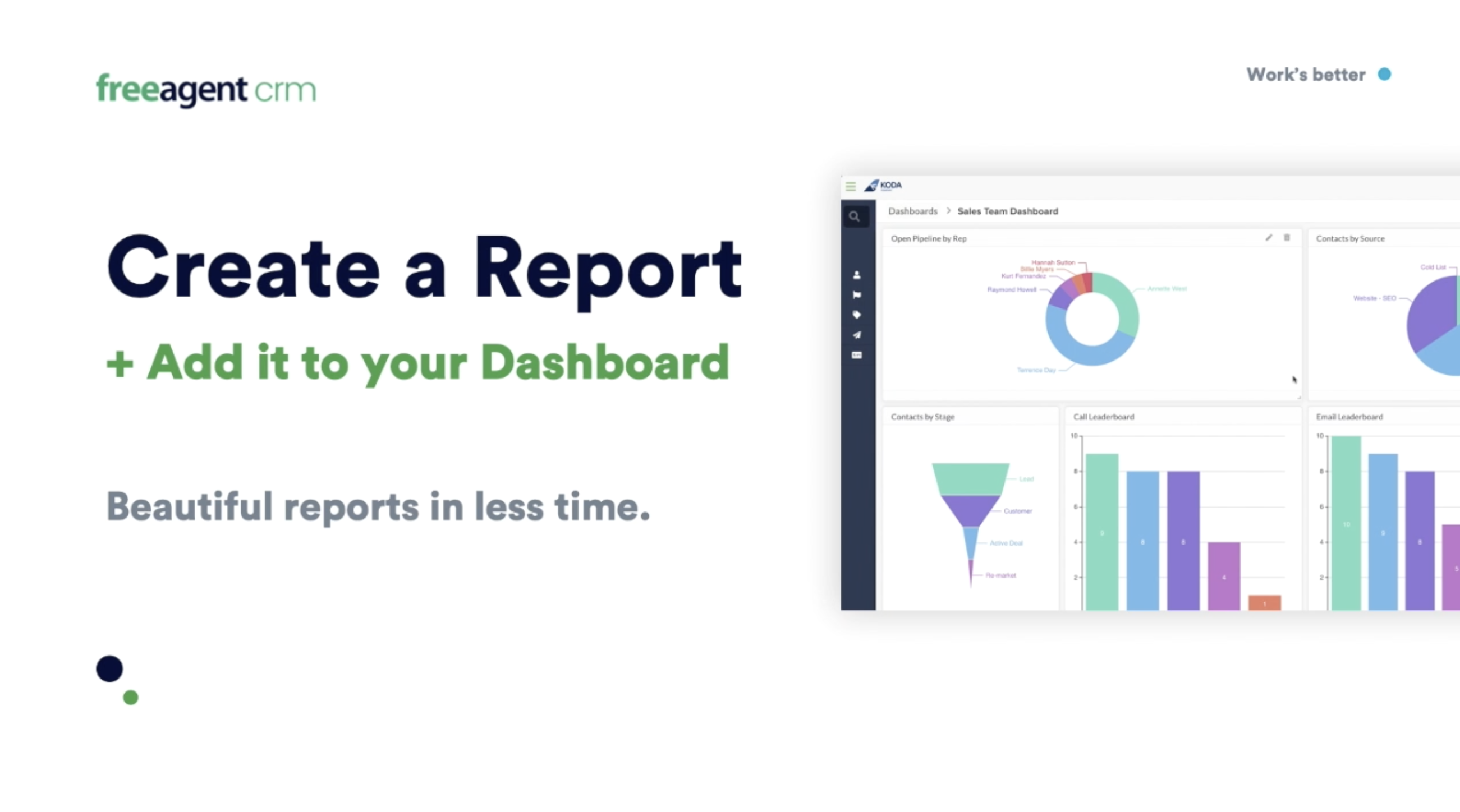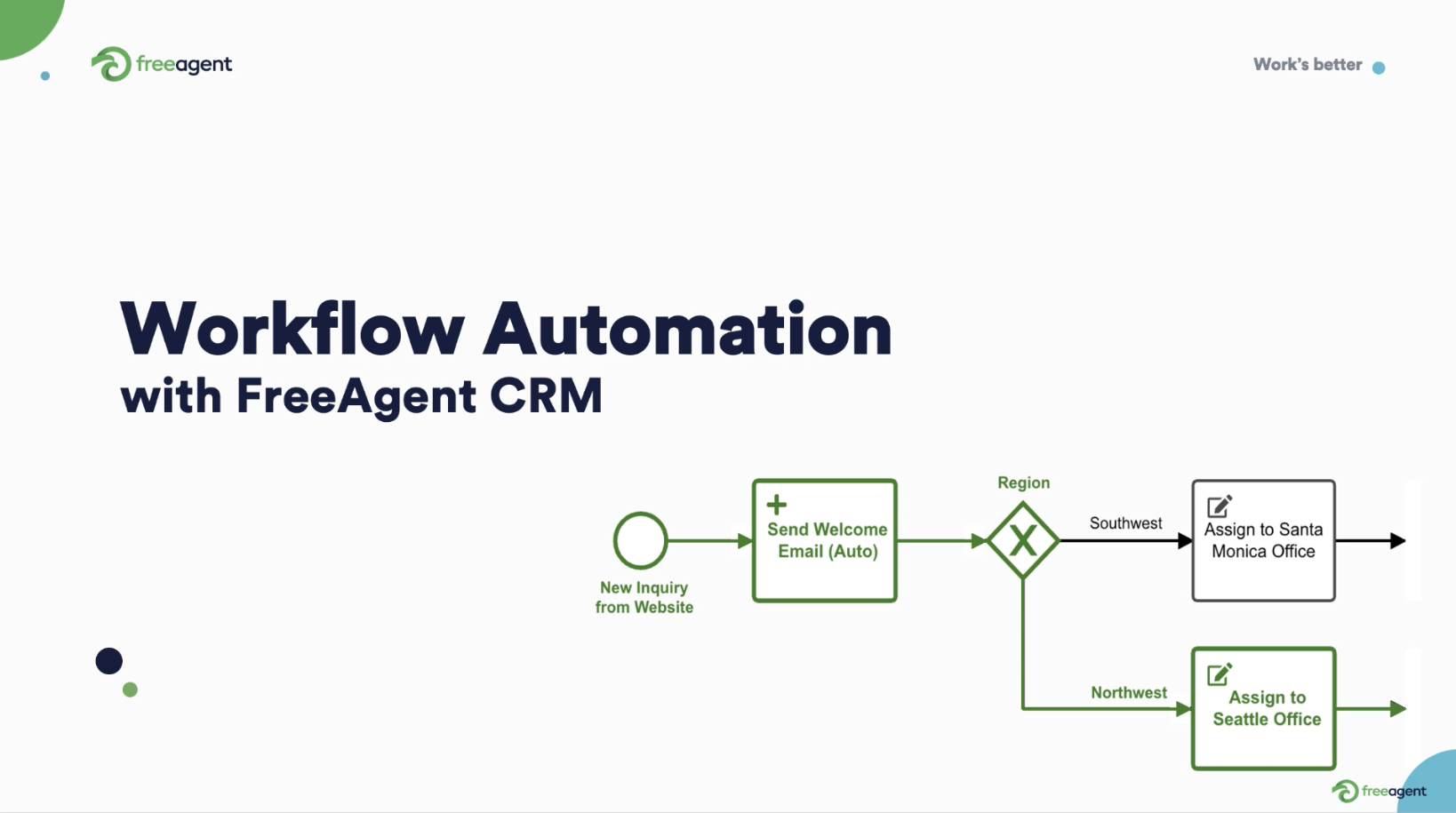The primary function of sales is to convert opportunities into deals.
Yet, for many companies, managing sales opportunities is a fairly loose process that relies on the skills of individual agents, rather than a tried and true system.
Inconsistent processes lead to inconsistent results. That can mean boom and bust cycles that contribute to:
- Poor sales forecasts
- Uninformed decision-making
- Negative customer experiences
Fortunately, improving your sales opportunity management is achievable with a little insight, some planning, and the right tools.
In this article, we will offer some tips you can use immediately to elevate your sales opportunity management and maximize your sales potential.

What is sales opportunity management?
Sales opportunity management consists of the processes and systems you use to engage opportunities in your pipeline.
When we refer to opportunities in this context we are referring to your hottest leads — those most likely to convert into wins.
Why is sales opportunity management important?
The benefits of effective sales opportunity management include:
- Increased win rate: Focusing your resources on your top prospects leads to more wins and bigger deal sizes.
- Reduced cycle time: A defined game plan helps your team stay on track so they can close deals faster.
- Improved customer experiences: Codified processes allow your team to set proper expectations and deliver on them.
- More accurate quoting: Knowing what lies ahead allows for more accurate quotes about cost and timelines.
- Messaging/process alignment: Your teams work better together when they are all on the same page.

The 6 elements of effective sales opportunity management
There are 6 elements to consider when implementing an effective sales opportunity management process. They are:
- Your sales process: What are the standardized practices your team uses to follow up with an opportunity?
- Qualification: How do you determine whether a lead is an opportunity?
- Research: What channels, tools, and resources does your team use to research an opportunity?
- Personalized communication: How do you action your findings from the research phase across all sales channels?
- Tracking and assessment: How do you track and evaluate the success of your team’s efforts?
- Refinement: How and when do you apply your learnings from the tracking phase?
Let’s take a look at each element in more detail.
1. Your sales process
Opportunity management is an important phase in your overall sales process and influences the success of your sales strategy.
The techniques and practices you employ when pursuing sales opportunities will vary depending on the products and services you offer and the tools and resources you use.
Regardless of your specific processes, improve the elements outlined in this article to improve your opportunity management overall.

2. Qualification
Using defined criteria to evaluate the quality of your leads allows you to distribute and action your leads efficiently.
This criterion doesn’t have to be complicated. BANT (Budget, Authority, Needs, Timeframe) is an example of a simple, yet effective qualification criteria that looks at 4 key factors to determine the value of a lead.
MEDDIC is similar to BANT but accounts for a few more variables. With MEDDIC lead qualification strategy, you consider the lead’s critical [M]etrics, who the [E]conomic buyer is, what their [D]ecision criteria are, what their [D]ecision process looks like, [I]dentify their pain points, and consider the [C]hampions within their organization.
Lead Scoring is a more in-depth approach to lead qualification that assigns a value to a lead based on factors such as industry, role, and region.
Whatever approach you take, a defined lead qualification criteria aligns your team and sets the groundwork for your sales processes.

3. Research
The more you know about a prospect, the more you can tailor your messaging to address their specific needs in the limited amount of time you have with them.
Your lead source plays a big part in both the amount and quality of information you have about an opportunity.
For example, if a lead filled out a web form or questionnaire, you may have a lot of details about their company and goals.
On the other hand, if a lead came from an event you attended, you may have little more to go off of than a company name and contact.
Regardless of the amount of information you have to start with, investing time and resources in learning more is always a good idea.
Many companies have extensive “About us” sections on their website that outline their mission, values, and history. This information is great for building early rapport.
Additional research can help you discover common pain points for an industry or specific details about a contact. This information can build trust and prove expertise.
Another consideration is how to capture and share the information you gather with your team.
We’ll discuss this in more detail as we explore the tools that can help you improve your sales opportunity management.

4. Personalized communication
There is no one-size-fits-all strategy for selling. Every business is unique and every contact is a real person with their own preferences, biases, and needs.
Personalizing your communications with prospects creates a better overall experience and leads to more wins.
Personalization is about more than just knowing a contact’s name and timezone.
It means understanding your prospect’s specific needs and challenges, as well as their preferred tone (casual, business-like, humorous), their vision, and their goals.
This information is used to tailor demos, marketing materials, and service/product options accordingly.
5. Tracking and assessment
Tracking and assessing the effectiveness of your sales opportunity management requires more detail than just your win/loss rate or the length of your sales cycle. You need to know:
- How many touchpoints an opportunity had
- The method of communication of those touchpoints (calls, emails, demos)
- How many team members were involved
The more data points you can measure, the better.
The tools you use to manage your sales opportunities will determine your ability to track and assess your processes. For example, if you have to manually create reports from spreadsheet data, time may limit the amount of detail you can extract.
It’s good practice to debrief your team after every win and loss. Ask them:
- What did you feel worked well? What didn’t work as well?
- What would you have done differently? What would you have repeated?
- Is there something that could have helped that you didn’t have?
No one knows your processes better than the team who uses them. Involving them in its assessment can help identify pain points and get buy-in on solutions.

6. Refinement
Sales opportunity management is an ongoing process and will evolve as your company does.
If you expand upmarket or move into new territories, the strategies and techniques you use will have to change.
Making small changes over time is generally better. Wholesale changes can be jarring for your team and make it difficult to evaluate the results they produce.
Sales opportunity management tools
Given the importance of sales opportunity management, investing in the best tools for the job is a priority.
That said, it can be hard to identify exactly what tools are best. The three most common tools for sales opportunity management are:
- Spreadsheets: While spreadsheets can be cumbersome to manage, they are a well-known commodity. Most people know how to use them, at least on a basic level. It is possible to run your sales opportunity management off of spreadsheets (especially with small teams) but there will be challenges with tracking, assessing, and refining your processes. Additionally, human error is more prevalent as almost everything has to be entered manually (a major time sink).
- Opportunity management systems: As the name implies, these specialized tools are great for managing sales opportunities. They can capture and centralize your contact and account data, keep a history of prior sales and interactions, and provide metrics for better assessment and refinement. The only drawback to these tools is that they are limited to primarily sales functions. Coordinating with your product and marketing teams and fulfilling orders are beyond their scope.
- CRM (customer relationship management): CRM software is the ultimate tool for customer management of any kind, including sales opportunity management.

Why a CRM is the best tool for sales opportunity management
CRM software can:
- Capture and centralize all your customer communications: CRMs can integrate with the tools you use to source and capture leads, saving you time and effort while eliminating errors. Additionally, all communications with your customers (including support calls, customer success engagements, and marketing reach-outs) are logged and timestamped, giving your reps the complete story at-a-glance.
- Track all your team’s activities: A CRM provides you with the most accurate and up-to-date data on your team’s activities.
- Turn your data into easy-to-digest reports and dashboards: A CRM can help you create visually stunning reports and dashboards quickly and easily. Use filters to see all the information you want to see and exclude all the information you don’t.
- Streamline your processes: With automations and workflow technology, a CRM can help you build out processes that your whole team can follow. Additionally, reminders and task alerts help keep the ball rolling as you coordinate across departments.
FreeAgent CRM can help you implement a winning sales opportunity management process
FreeAgent CRM helps teams like yours improve their sales opportunity management with top-of-field tools and expertise.
To discover first-hand how we can help you take your sales opportunity management to the next level, start a free trial today.






